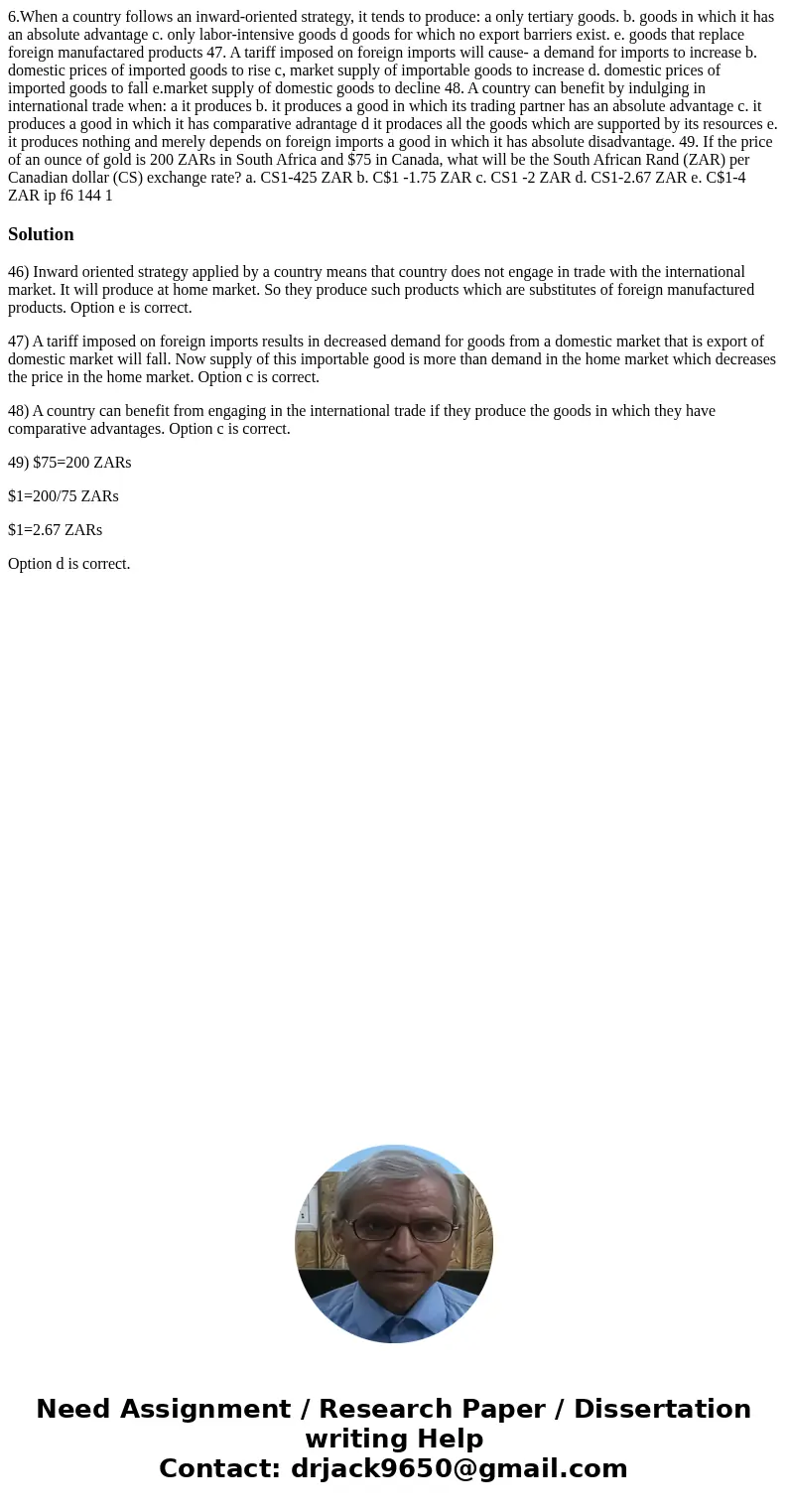6.When a country follows an inward-oriented strategy, it tends to produce: a only tertiary goods. b. goods in which it has an absolute advantage c. only labor-intensive goods d goods for which no export barriers exist. e. goods that replace foreign manufactared products 47. A tariff imposed on foreign imports will cause- a demand for imports to increase b. domestic prices of imported goods to rise c, market supply of importable goods to increase d. domestic prices of imported goods to fall e.market supply of domestic goods to decline 48. A country can benefit by indulging in international trade when: a it produces b. it produces a good in which its trading partner has an absolute advantage c. it produces a good in which it has comparative adrantage d it prodaces all the goods which are supported by its resources e. it produces nothing and merely depends on foreign imports a good in which it has absolute disadvantage. 49. If the price of an ounce of gold is 200 ZARs in South Africa and $75 in Canada, what will be the South African Rand (ZAR) per Canadian dollar (CS) exchange rate? a. CS1-425 ZAR b. C$1 -1.75 ZAR c. CS1 -2 ZAR d. CS1-2.67 ZAR e. C$1-4 ZAR ip f6 144 1
46) Inward oriented strategy applied by a country means that country does not engage in trade with the international market. It will produce at home market. So they produce such products which are substitutes of foreign manufactured products. Option e is correct.
47) A tariff imposed on foreign imports results in decreased demand for goods from a domestic market that is export of domestic market will fall. Now supply of this importable good is more than demand in the home market which decreases the price in the home market. Option c is correct.
48) A country can benefit from engaging in the international trade if they produce the goods in which they have comparative advantages. Option c is correct.
49) $75=200 ZARs
$1=200/75 ZARs
$1=2.67 ZARs
Option d is correct.

 Homework Sourse
Homework Sourse